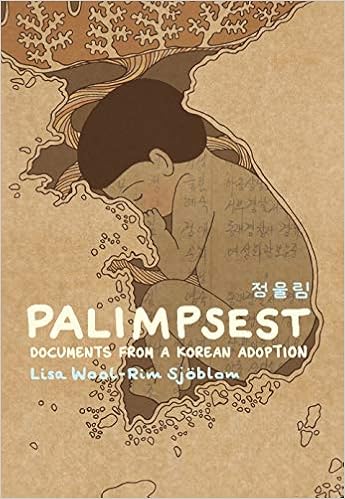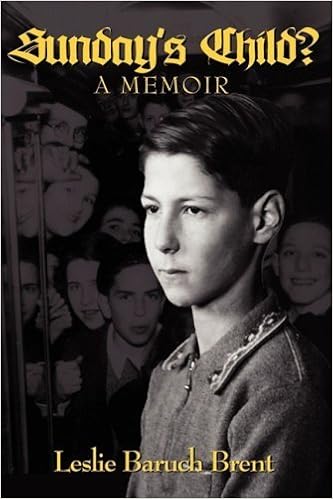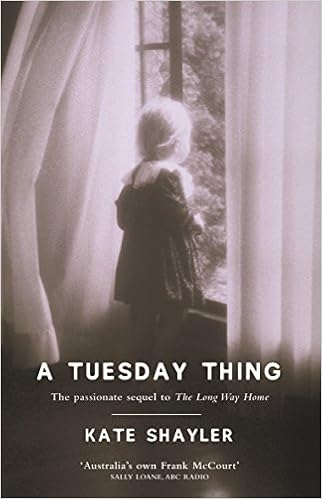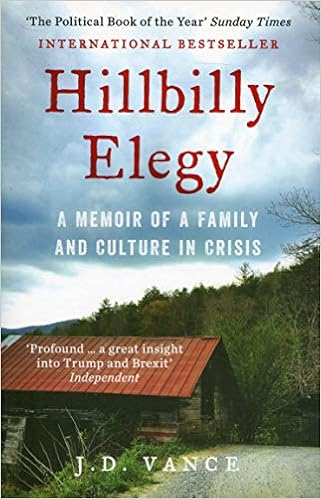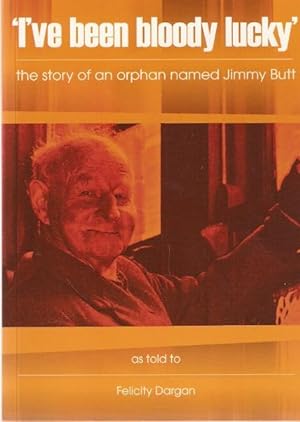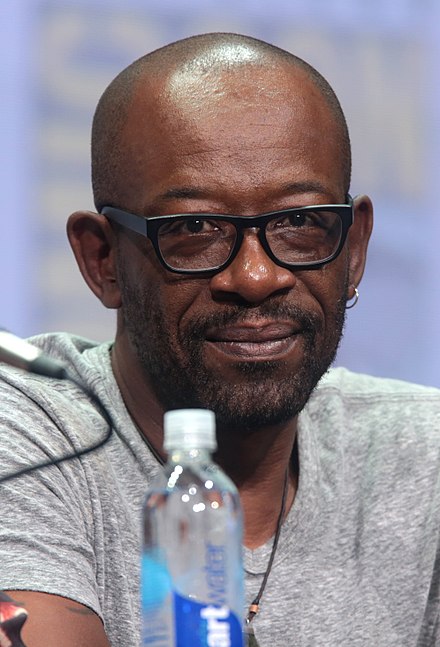Search Results
5677 results found with an empty search
- Foster Kid
Autobiography/Memoir Foster Kid Paul Barber 2008 After the death of his mother, Paul and his brothers and sister spent the rest of their childhoods in a succession of children's and foster homes where they found themselves at the mercy of adults more interested in their own welfare than providing a loving home. Paul left care at the age of sixteen, and three years later landed his first acting role, by accident, in the musical 'Hair', which put him on the path to London and a successful career in show business. External Website
- Tommy Davidson
Actors Tommy Davidson Thomas "Tommy" Davidson was born (November 10, 1963) in Rolling Fork, Mississippi. He is an American comedian, film and television actor. He was an original cast member on the sketch comedy TV show In Living Colour. As a baby, Tommy’s birth mother literally threw him behind a garbage can and left him there. His adoptive mother, Barbara Jean Davidson said that she had a feeling to look behind the public trash can in the alley and she spied a toddler’s foot poking out from behind a tire in a pile of garbage in Greenville, Miss., From there she took him to the hospital where they didn’t know if he would live or die. Davidson says: “I was damaged pretty bad. I had contusions in my skull, was scarred. The doctors didn’t even know if I was going to live.” Following his adoption by a white family in 1966, they moved state to state until he was about 5 years old when they moved to the East Coast, Washington, DC at one of the most racially volatile times in American history–two days after Dr. Martin Luther King Jr was shot and killed. It was after this that he experienced childhood incidents of racial abuse from both white and black people. What he says about his upbring was that: “The love that I got didn’t have any color.” Davidson met his birth mother in 1998 when he was performing in Wisconsin, where she lived, and invited her and her family to the show. He calls the reunion “an out-of-body experience,” but found it difficult to “acknowledge her as my mother.” He learned that Gene already had three other children before him and was struggling with addiction. She managed to turn her life around and now works as a minister traveling around the country giving sermons. After some intense conversations, Davidson says he was able to forgive her. “Because I realized that she didn’t abandon me on purpose,” he writes. “She had no control over what she was doing … What I learned was that a person can do the most awful thing imaginable — abandon her child — and still heal herself … Forgiveness can be powerful.” External Website
- Palimpsest
Autobiography/Memoir Palimpsest Lisa Wool-Rim Sjoeblom 2019 Thousands of South Korean children were adopted around the world in the 1970s and 1980s. More than nine thousand found their new home in Sweden, including the cartoonist Lisa Wool-Rim Sjoblom, who was adopted when she was two years old. Throughout her childhood she struggled to fit into the homogenous Swedish culture and was continually told to suppress the innate desire to know her origins. Be thankful, she was told; surely her life in Sweden was better than it would have been in Korea. Like many adoptees, Sjoblom learned to bury the feeling of abandonment. In Palimpsest, an emotionally charged memoir, Sjoblom s unaddressed feelings about her adoption come to a head when she is pregnant with her first child. When she discovers a document containing the names of her biological parents, she realizes her own history may not match up with the story she s been told her whole life: that she was an orphan without a background. As Sjoblom digs deeper into her own backstory, returning to Korea and the orphanage, she finds that the truth is much more complicated than the story she was told and struggled to believe. The sacred image of adoption as a humanitarian act that gives parents to orphans begins to unravel. Sjoblom s beautiful autumnal tones and clear-line style belie the complicated nature of this graphic memoir s vital central question: Who owns the story of an adoption? External Website
- Sunday's Child? - a Memoir
Autobiography/Memoir Sunday's Child? - a Memoir Leslie Baruch Brent 2009 Professor Leslie Baruch Brent (known in the scientific world as Leslie Brent) arrived in England late in 1938 in the first of the many Kindertransports. In England he went to Bunce Court School. After WWII, Brent became a British citizen and earned his PhD at University College London. External Website
- Sunday's Child? A Memoir by Leslie Baruch Brent
Autobiography/Memoir Sunday's Child? A Memoir by Leslie Baruch Brent Jocelyn Morris Morris et al. 2010 Leslie Brent had born in 1925. In 1938, he was chosen with several other boys at the Orphanage to travel to England on the first of the many Kindertransports. He spent the evening before he left with his family who comforted him with the idea that this would be a temporary separation. He never saw any member of his family again. External Website
- Out of sight: the censoring of family diversity in picture books
Academic Articles Out of sight: the censoring of family diversity in picture books Sarah Mokrycki 2019 Family diversity has long been censored, silenced, and ignored in Australian picture books. Despite its long running representation in books for older readers, the concept of exploring family diversity at picture book levels remains nothing short of radical. This essay will examine what it means to be a family, the issues surrounding family diversity in picture books, and why such books deserve to be championed. External Website
- A Tuesday Thing
Autobiography/Memoir A Tuesday Thing Kate Shayler 2004 The heartwarming sequel to The Long Way Home. A Tuesday Thing starts with a young adult Kate striving to be accepted as normal among her peers. Lacking the confidence, her dreams and expectations of ever becoming a member of a real family seem to evaporate. She starts an early childhood course at university but just as her teaching career brings her joy and new challenges, the dark secrets from her past resurface and Kate must face her demons - particularly the father who robbed her of a childhood but at the same time never stopped loving her. External Website
- I set off on an unchartered course...and found myself drifting
Autobiography/Memoir I set off on an unchartered course...and found myself drifting David Jackson 2015 David Jackson grew up in foster care. Although he was well loved, his education was not prioritised or encouraged. He resat his final year of high school when he was in his 20s and then went on to university to study social work. External Website
- Victoria Rowell
Actors Victoria Rowell Victoria Lynn Rowell was born (May 10, 1959) in Portland, Maine. She is an American actress, writer, producer and dancer. Her biological mother, Dorothy Rowell, was of English descent and a Mayflower descendant, and her birth father, whose surname was Wilson, was of Jamaican descent. Rowell knew very little about her father. Her mother, who suffered from schizophrenia, took a taxi to a hospital to give birth to Rowell, leaving a son and two small daughters unsupervised. When Victoria was 16 days old, (along with her two sisters, Sheree and Lori), she was surrendered to child services. Rowell began her career as a ballet dancer and model, before making her acting debut in the 1987 comedy film, Leonard Part 6. In 1990, Rowell joined the cast of the CBS daytime soap opera, The Young and the Restless, as Drucilla Winters, her signature and longest role on television, for which she was nominated for three Daytime Emmy Awards. She departed from the show in 2007. In 1990, Rowell founded the "Rowell Foster Children Positive Plan," which gives emotional support and financial aid to foster children, especially to those who aspire to become actors and dancers – the road Rowell took. In May 2006, Rowell was awarded an honorary Doctorate of Humane Letters by the University of Southern Maine in recognition of her work for the benefit of foster children. External Website
- Academic Articles, J
Authors J Louis Armstrong’s “Karnofsky Document”: The Reaffirmation of Social Death and the Afterlife of Emotional Labor ➝ Back to Top
- Shadow child: a memoir of the stolen generation
Autobiography/Memoir Shadow child: a memoir of the stolen generation Rosalie Fraser 1998 Shadow child describes Rosalie Fraser's childhood experiences of separation from her parents while a State Ward in Western Australia and child abuse within a foster family. The story also documents Rosalie's search for her natural family following her marriage, including information obtained from official records. External Website
- It’s My Journey: It’s My Life! Care leavers and access to social care files
Academic Articles It’s My Journey: It’s My Life! Care leavers and access to social care files Care Leaver Association 2016 It’s My Journey: It’s My Life! Care leavers and access to social care files A report on a series of multi agency roundtable discussions on Data Protection, Subject Access Requests and Support External Website
- The Boy Who Loved Books: A Memoir
Autobiography/Memoir The Boy Who Loved Books: A Memoir John Sutherland 2007 Memoir of British academic and literary critic, John Sutherland, who was in kinship care as a child. External Website
- Acceptance: A Memoir
Autobiography/Memoir Acceptance: A Memoir Emi Nietfeld 2022 Acceptance is a memoir of the author's journey through foster care and homelessness, interrogating the true meanings of resilience, ambition, and success. As a homeless teenager writing college essays in her rusty Toyota Corolla, Emi Nietfeld was convinced that the Ivy League was the only escape from her dysfunctional childhood. But upward mobility required crafting the perfect resilience narrative. She had to prove that she was an “overcomer,” made stronger by all that she had endured. The truth was more complicated. Emi’s mom was a charming hoarder who had her put on antipsychotics but believed in her daughter’s brilliance—unlike the Minnesotan foster family who banned her “pornographic” art history flash cards (of Michelangelo’s David). Emi’s other parent vanished shortly after coming out as trans, a situation few understood in the mid-2000s. Her own past was filled with secrets: mental health struggles, Adderall addiction, and the unbecoming desperation of a teenager fending for herself. And though Emi would go on to graduate from Harvard and become a software engineer at Google, she found that success didn’t necessarily mean safety. External Website
- Lee Majors
Actors Lee Majors Lee Majors (born Harvey Lee Yeary; April 23, 1939) is an American film, television and voice actor. Majors was born in Wyandotte, Michigan, a suburb of Detroit. His parents, Carl and Alice Yeary, were both killed in separate accidents (his father in a work accident 5 months prior to his birth and his mother in a car accident when he was almost 17 months old). At age two, Majors was adopted by his uncle and aunt, Harvey and Mildred Yeary and moved with them to Middlesboro, Kentucky. Majors is best known for portraying the characters of Heath Barkley in the American television Western series The Big Valley (1965–1969), Colonel Steve Austin in the American television science fiction action series The Six Million Dollar Man (1973–1978), and Colt Seavers in American television action series The Fall Guy (1981–1986). External Website
- Autobiography/Memoir, V
Authors V Hillbilly Elegy: A Memoir Of A Family And Culture In Crisis ➝ Back to Top
- Artists, P
Authors P Niki de Saint Phalle ➝ Back to Top
- I've been bloody lucky: the story of an orphan named Jimmy Butt
Autobiography/Memoir I've been bloody lucky: the story of an orphan named Jimmy Butt Felicity Dargan 2006 Jimmy relives each colourful episode of his childhood as an orphan growing up in the 1920s and 30s in Australia. He was fostered to 16 different families across Melbourne and country Victoria. Some families treated Jimmy well, others poorly. External Website
- Actors, J
Authors J Lennie James (actor) ➝ Back to Top
- Evelyn: A True Story
Autobiography/Memoir Evelyn: A True Story Evelyn Doyle 2004 Told through the eyes of his daughter Evelyn, this is the story of a father's fight to reclaim his children from the Irish government in the 1950s, now a major film. External Website



